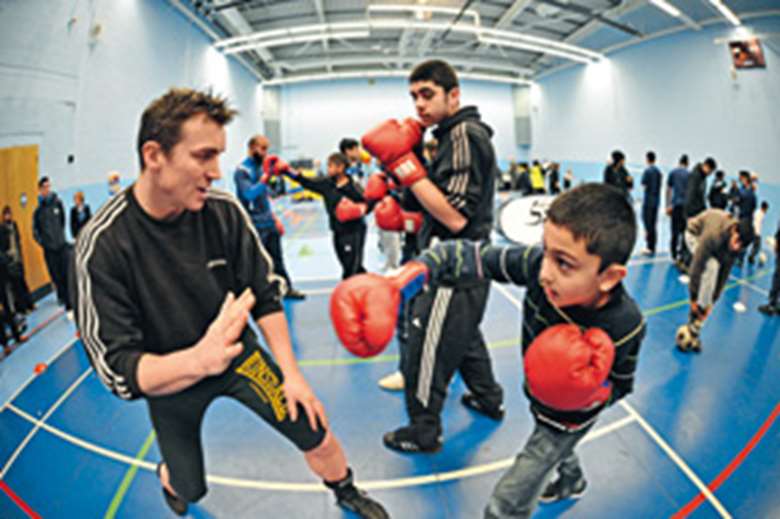Good Practice: Positive activities in Coventry
Monday, March 7, 2011
Sports captivate Coventry young people

Funding Total funding was about £230,600 in 2009/10 from a range of sources including the Football Foundation, Coventry Health Improvement Programme, the Home Office, Community Safety Partnership, Catch22, Sidney Stringer Secondary School and Coventry City Council
Purpose To get disadvantaged young people involved in positive activities and boost their life chances
Background Positive Futures is a Home Office community-based prevention programme that launched in 2001.
The initiative is currently run in 91 areas and is overseen by the charity Catch22. Last month, the programme received £10m in government funding.
Coventry Positive Futures launched in May 2002 to get more young people from the city involved in positive activities. In the past, services had struggled to reach this age group, explains service manager Rashid Bhayat. When he was 17, he set up a voluntary sports organisation that showed how sport was a great way to engage young people.
"The young people I was working with weren't accessing other mainstream provision in the area so it was clear a different approach was needed," says Bhayat, who was instrumental in setting up Positive Futures.
Action The project started small, operating mainly in the Hillfields area of the city. However, local organisations including the police, schools, and social services soon saw the benefits and were keen to be involved, says Bhayat.
The scheme offered a range of sports, combining more traditional activities like football and basketball with fishing and boxing. "We introduced fishing and boxing quite early on," says Bhayat. "We found that a sweaty gym setting suited some of the tougher lads while fishing was a chance for young people to get out of their local community."
The scheme is now city-wide, running seven days a week. Between 30 and 40 different activities are on offer to 10- to 19-year-olds each week, including dance, drama and music, and a Creative Futures programme designed to engage girls. The youth advisory group was set up to enable young people to play an active role in planning and delivering activities.
Bhayat puts the scheme's success down to two key factors. "First, we have got local people working with local kids, which has a massive influence because a lot of it is based on building good relationships and role-modelling," he says. "Second, we have had strong strategic support." That includes the council, community safety partnership, and other community services.
Nevertheless, funding has always been an issue, says Bhayat and is a real concern in the current economic climate. Positive Futures is now one strand of a wider scheme called Coventry Sporting Futures. "We're looking very carefully at the model," says Bhayat. "It may be that Coventry Sporting Futures becomes an independent organisation."
Outcome: A national evaluation of the programme has found improved engagement among 70 per cent of participants, with more than 10,000 gaining qualifications and almost 30,000 achieving other positive outcomes including gaining employment, volunteering and returning to education.
The fact that many of Bhayat's staff team started off as young people using the service is a testament to its success, he says. His staff work with 150 young people on an intensive basis and after their involvement in the scheme, 11 went on to gain employment, 17 enrolled in a drug treatment programme and 14 enrolled in a smoking cessation programme. In all, participants gained 116 qualifications.
Coventry Positive Futures is particularly pleased with the success of its youth advisory group, a group of 25 young people who have come out of the scheme and now help to organise, and deliver their own programmes.
An evaluation of the advisory group concluded that it provided a social return on investment of about £13 for every £1 spent. Based on an annual budget of about £35,000, that equates to £466,000 of social and economic value.
- If you think your project or programme is worthy of inclusion, email supporting data to andy.hillier@haymarket.com
OUTCOMES OF POSITIVE FUTURES
70% - Percentage of participants nationwide who said the programme had improved engagement
10,000 - Number of young people who had gained qualifications after taking part in Positive Futures nationwide
30,000 - Number of young people achieving other positive outcomes including gaining employment, volunteering and returning to education
Source: Positive Futures




